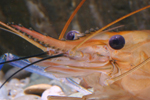Decision-making ability linked to success in colonizing new environments
Strong memory, being able to predict the future, and acting based on one’s surroundings are traits typically associated only with the most advanced types of animals. However, a team of German and Dutch scientists from the Helmholtz Center for Environmental Research (UFZ) and the University of Göttingen found ecological evidence that plants also have these abilities. Their findings were recently published in The American Naturalist.
The researchers made their discovery by studying the European barberry (Berberis vulgaris). Although becoming increasingly common in North America, the European barberry is native to European dry scrub and open forested lands. A close relative, the Oregon grape (Mahonia aquifolium) has been spreading across Europe for the past 200 years, but not as fast as some botanists predicted. To find out why, the research team compared the two species and their responses to a shared parasite.

European barberries (Berberis vulgaris) have spread throughout the world due, in part, to their ability to respond to different environmental conditions.
A species of fruit fly relies on the seeds of either the European barberry or the Oregon grape for development. The flies lay their eggs within the fruit so that, once hatched, the larvae can feed on the seeds. Usually only one fly larva reaches full development within the fruit, but still damages many or all of the seeds.
Each plant is equipped with the ability to abort seeds when in danger of an insect predator or even stressed from drought. Since there are generally two ovules within the ovaries of European barberries, it is able to create multiple seeds. This adaptation could help save one seed if the other is aborted or eaten.
 Many species of fruitfly, such as this medfly (Ceratitis capitata), lay eggs in the fruits of plants. |
The scientists collected thousands of berries from German scrublands and forested lands that the plants inhabit. This allowed them to gather data on how the plants were affected by the lack of water available in the scrublands. Then they recorded how the plants were impacted by predation from fruit flies by counting the number of holes caused by the insects in each fruit and the number of seeds eaten versus seeds aborted as a result of larval infestation.
After comparing their results, the researchers found that the Oregon grapes have not been as successful as the European barberries because they have been attacked at much higher rates. Further investigation led the scientists to believe that plant intelligence may play a key role in why this is so.
The European barberry benefits greatly from its ability to selectively abort seeds that are threatened. On top of that, the scientists found that the plants also exhibit adaptive behaviors by only aborting a seed if it knows it has the ability to create a new one.
“This indicates decision-making [that is] conditional on inner and outer conditions,” lead author, Katrin Meyer, told mongabay.com.
The researchers attribute some of the success of the European barberry to its home field advantage, and its coevolution with the native fruit flies. However, they also highlight the importance and complexity of these newly discovered ecological interactions, which they say may lead to many advances in the field of “plant intelligence.”
Citations:
- Meyer, K. M., Soldaat, L. L., Auge, H., & Thulke, H. H. (2014). Adaptive and Selective Seed Abortion Reveals Complex Conditional Decision Making in Plants. The American Naturalist, 183(3), 376-383.
Related articles
Over 800 species added to IUCN threatened list, including 44 lemurs
(06/16/2014) Experts have added 817 species to the threatened categories of the IUCN Red List in the latest update. Those added include 51 mammals—mostly lemurs—and over 400 plants. The new update finds that over 90 percent of lemurs and 79 percent of temperate slipper orchids are threatened with extinction.
Olinguito, tinkerbell, and a dragon: meet the top 10 new species of 2013

(05/22/2014) Out of around 18,000 new species described and named last year, scientists have highlighted ten in an effort to raise awareness about the imperiled biodiversity around us. Each species—from a teddy-bear-like carnivore in the Andes to a microbe that survives clean rooms where spaceships are built—stands out from the crowd for one reason or another.
Life finds a way: the surprising biodiversity of cities

(04/11/2014) In the largest global assessment of urban biodiversity to date, researchers examined the biodiversity of urban areas and found that cities are home to a surprising number of species. The study underlines the conservation importance of preserving and creating green spaces when it comes to urban planning.
Amazon trees super-diverse in chemicals

(03/03/2014) In the Western Amazon—arguably the world’s most biodiverse region—scientists have found that not only is the forest super-rich in species, but also in chemicals. Climbing into the canopy of thousands of trees across 19 different forests in the region—from the lowland Amazon to high Andean cloud forests—the researchers sampled chemical signatures from canopy leaves and were surprised by the levels of diversity uncovered.
Next big idea in forest conservation? Applying genomics to conservation issues

(02/21/2014) Jaboury Ghazoul uses his expertise in plant ecology to address societal issues ranging from climate change adaptation to food production. He is excited about the use of genomics– the study of hereditary information passed down through an organism’s genetic code–for conservation. And genomics are certainly a hot topic in modern ecology.
Bromeliads may actually protect fruit trees from pest damage

(01/22/2014) Imagine a plant. Now remove the soil, for it’s not essential. In fact, an estimated one-tenth of all plant species have liberated themselves from soil and evolved into epiphytes — plants that grow on other plants.
Characteristics of nutmeg family explored
(11/11/2013) A special issue of Mongabay’s open-access academic journal, Tropical Conservation Science, explores the state of knowledge of the nutmeg (Myristicaceae) tree family.
‘Lost’ bird rediscovered in New Caledonia along with 16 potentially new species (photos)

(10/29/2013) In early 2011, Conservation International (CI) dubbed the forests of New Caledonia the second-most imperiled in the world after those on mainland Southeast Asia. Today, CI has released the results of a biodiversity survey under the group’s Rapid Assessment Program (RAP) to New Caledonia’s tallest mountain, Mount Panié. During the survey researchers rediscovered the ‘lost’ crow honeyeater and possibly sixteen new or recently-described species. Over 20 percent larger than Connecticut, New Caledonia is a French island east of Australia in the Pacific Ocean.
Scientists outline how to save nearly 70 percent of the world’s plant species
(09/05/2013) In 2010 the Convention on Biological Diversity (CBD) pledged to set aside 17 percent of the world’s land as protected areas in addition to protecting 60 percent of the world’s plant species—through the Global Strategy for Plant Conservation (GSPC)—by 2020. Now a new study in Science finds that the world can achieve both ambitious goals at the same time—if only we protect the right places. Looking at data on over 100,000 flower plants, scientists determined that protecting 17 percent of the world’s land (focusing on priority plant areas) would conserve 67 percent of the world’s plants.
Over 700 species added to the threatened categories on the IUCN Red List (photos)

(07/02/2013) In another sign of the global biodiversity crisis, the IUCN Red List has added 715 species to its threatened categories of Vulnerable, Endangered, and Critically Endangered in this year’s update. Some of these species were evaluated by the IUCN Red List for the first time while others saw their conditions deteriorate, such as the the white-lipped peccary (Tayassu pecari) which is now listed as Vulnerable due to overhunting, deforestation, and possibly disease. As of this year, the Red List has evaluated 70,923 of the world’s species—including almost all mammals, birds, and amphibians—of which 20,934 are deemed threatened.